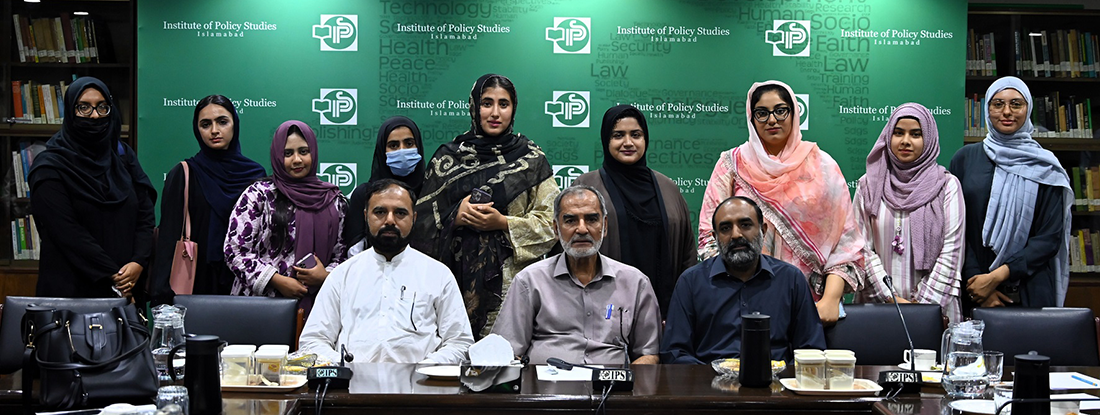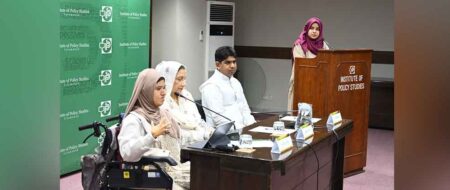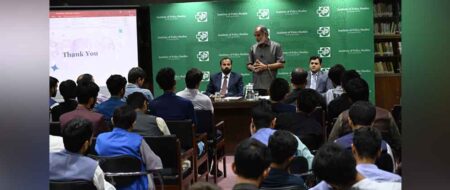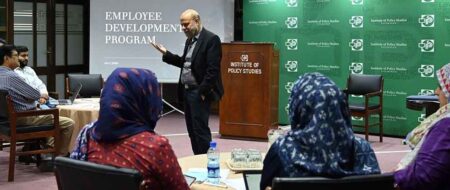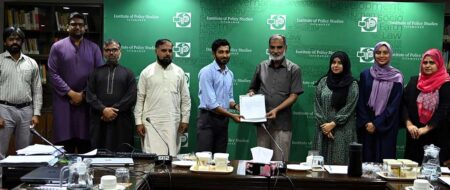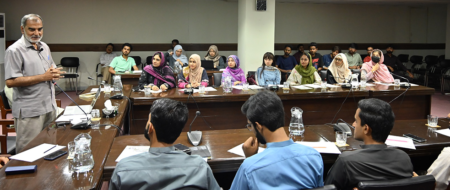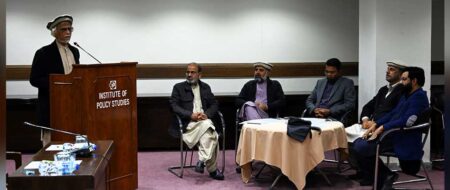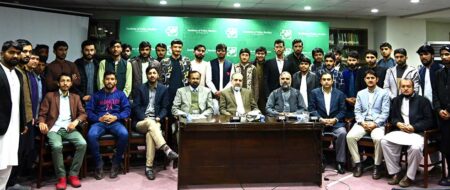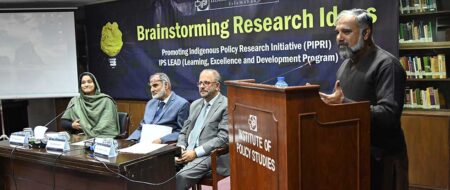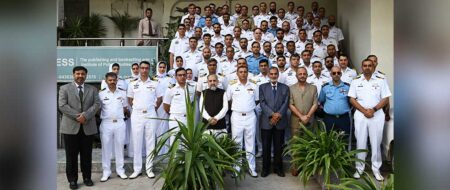Innovative, progressive leadership critical to tackle modern issues of public policy: Chairman IPS
Tackling modern, complicated issues require innovative leadership in public policy, along with coming up with solutions that promote sustainable growth. It guarantees progressive governance, effectively addressing the changing needs of the society and advancing long-term prosperity.
This was said by Khalid Rahman, chairman IPS, while delivering a lecture to the students of Riphah Institute of Public Policy (RIPP), Riphah International University (RIU), who were visiting IPS on May 16, 2023. The student delegation, led by Zubair Safdar, a faculty member at RIPP, was also addressed by Syed Nadeem Farhat, senior research fellow at IPS.
During the interactive session, Khalid Rahman conducted an exercise to highlight the diversity of perspectives and varying levels of attention to detail among individuals. By doing so, he emphasized the importance of meticulousness in professional fields such as public policy, where different viewpoints and careful analysis are crucial for effective policy formulation and implementation.
Following the exercise, Chairman IPS spoke about the significance of innovative leadership in the policy process. He emphasized that public policy serves as a vital tool for governments to fulfill their responsibilities to citizens through actions defined by the Constitution which needs innovative leadership to be successful.
He discussed the complexities inherent in public policy formulation, stressing the importance of understanding and effectively navigating the policy process. He outlined the stages of the policy process, starting from problem identification, agenda setting, consideration of policy options, decision-making, and formulation, implementation and administration, evaluation, termination, or reformation. Moreover, a good policy should be relevant, consistent, realistic, implementable, integrated with other policies, flexible, and well-defined, he said. These attributes ensure that the policy can effectively address the issues at hand and adapt to changing circumstances.
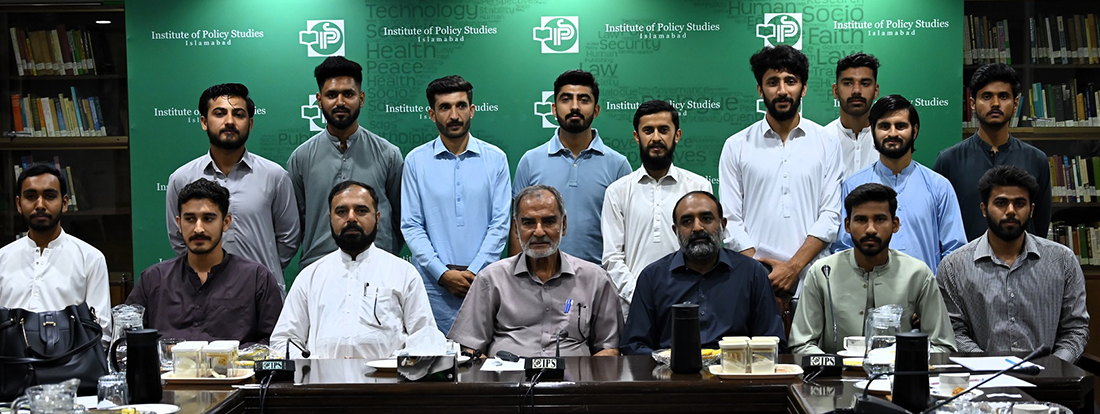
Addressing the queries of students, Khalid Rahman highlighted the role of think tanks in the policy-making process. These organizations gather facts beyond the obvious, explore underlying causes, and analyze data to provide well-informed solutions and ideas, he said. Think tanks contribute significantly to enhancing awareness and fostering a culture of policy-oriented thinking among civilians, bureaucracy, policymakers, and other stakeholders, he added.
Earlier, Nadeem Farhat introduced IPS and its work to the students. The presentation included the mandate, background, research areas, and work in conducting policy research. He also highlighted the role of IPS in collaborating with educational institutes and supporting scholars in their research work in various policy-oriented areas. He especially underlined the institute’s ‘Brainstorming Research Ideas’ program, which provides a platform and mentorship for research topics.
At the end of the session, Zubair Safdar thanked IPS and its team for an impactful interaction with the students and for hosting them.
